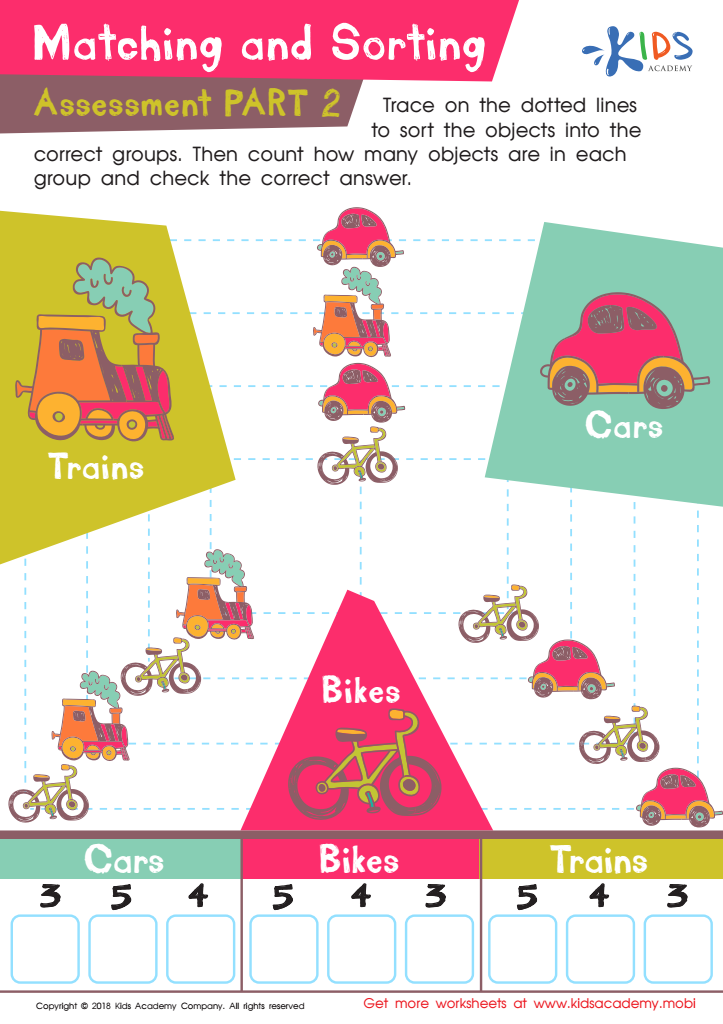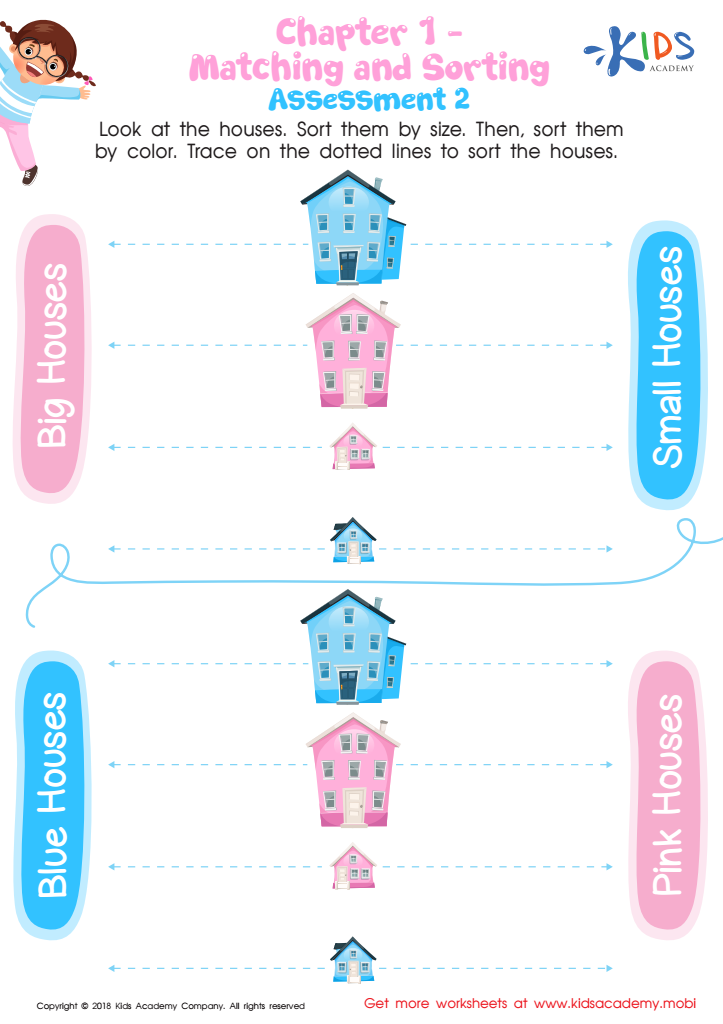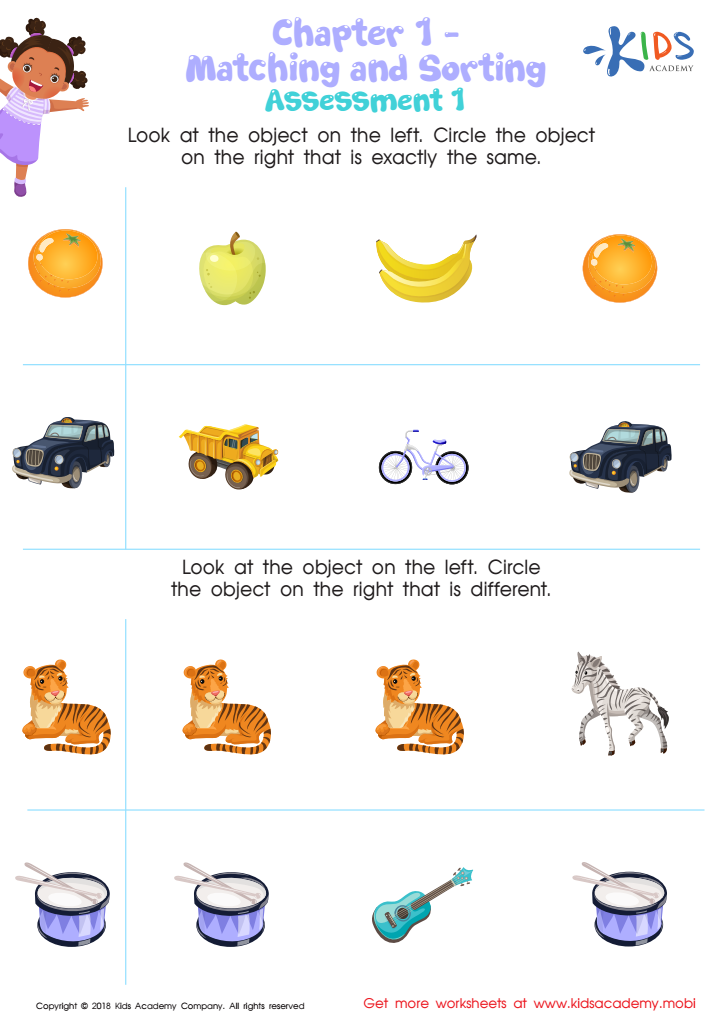Problem-Solving Skills Sorting Worksheets for Ages 4-9
4 filtered results
-
From - To
Discover engaging Problem-Solving Skills Sorting Worksheets tailored for children aged 4-9! Our thoughtfully designed worksheets boost critical thinking while offering fun sorting activities that challenge young minds. With a blend of colors, shapes, and patterns, children will enjoy sorting and categorizing items while enhancing their problem-solving abilities. These worksheets encourage creativity and provide a hands-on approach to learning, making education enjoyable and effective. Perfect for both classroom and at-home use, our resources support early learners in developing essential cognitive skills. Explore our collection today to foster a love for learning and cultivate problem-solving strategies in your young learners!


Make the Same Pattern Worksheet


Matching and Sorting for Kindergarten: Assessment 2 Worksheet


Matching and Sorting for Preschool: Assessment 2 Worksheet


Matching and Sorting for Preschool: Assessment 1 Worksheet
Problem-solving skills are crucial for children aged 4-9 as they lay the foundation for critical thinking and decision-making. During this developmental stage, children are naturally curious and eager to explore the world around them. Sorting activities, which involve categorizing objects based on attributes such as color, shape, size, or function, foster these essential problem-solving skills.
Engaging in sorting helps children learn to analyze and differentiate between various items, enhancing their cognitive abilities. It encourages them to observe patterns, make connections, and draw conclusions—skills applicable not just in academics but in everyday life. For teachers and parents, supporting sorting activities can create an interactive learning environment where children feel empowered to ask questions and seek solutions independently.
Moreover, sorting tasks promote other critical developmental areas, including language skills and social interaction when done in groups, enabling children to express their reasoning and cooperate with peers. By prioritizing problem-solving skill development through sorting activities, educators and parents can ensure children are better equipped to handle challenges as they grow, setting the stage for future academic and life success. Ultimately, nurturing these skills early empowers children to become confident thinkers and learners.
 Assign to My Students
Assign to My Students
















